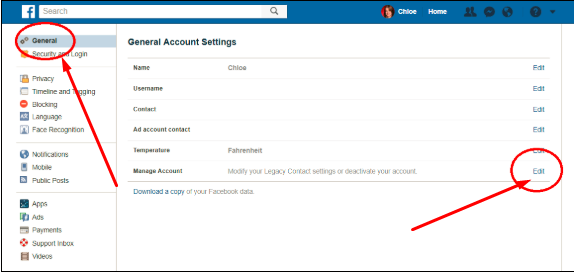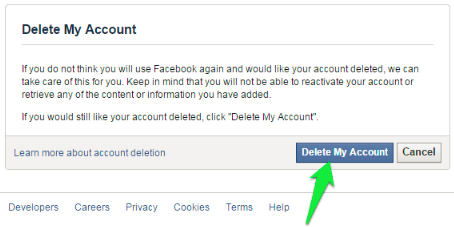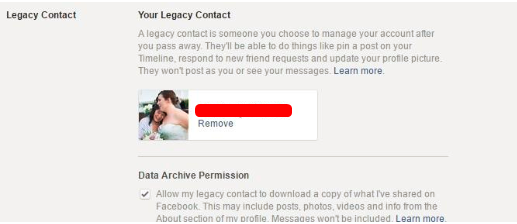If you're ready for a social media sites break, here's how you can remove Facebook.
How Do You Quit Facebook
Deactivating
Facebook offers you 2 alternatives: 2 options: deactivate or remove
The first could not be much easier. On the desktop computer, click the drop-down menu at the top-right of your screen and also select settings. Click General on the leading left, Edit beside "Manage Account" Scroll down and you'll see a "Deactivate My Account" web link at the bottom. (Right here's the direct link to utilize while logged in.).
If you get on your mobile phone, such as using Facebook for iphone, in a similar way go to settings > Account settings > General > Manage Account > Deactivate.
Facebook does not take this lightly - it'll do whatever it can to keep you about, consisting of psychological blackmail concerning just how much your friends will miss you.
Thus, "Deactivation" is not the like leaving Facebook. Yes, your timeline will disappear, you will not have accessibility to the site or your account by means of mobile apps, friends cannot upload or contact you, and you'll lose accessibility to all those third-party solutions that utilize (or need) Facebook for login. Yet Facebook does not remove the account. Why? So you can reactivate it later on.
Just if expected re-activation isn't in your future, you need to download a copy of all your data on Facebook - posts, pictures, videos, chats, etc.-- from the settings menu (under "General"). What you locate could amaze you, as our Neil Rubenking figured out.
Account Removal
To completely delete your Facebook account forever and ever, most likely to the Erase My Account page at https://www.facebook.com/help/delete_account. Just know that, per the Facebook data use policy "after you get rid of info from your profile or remove your account, copies of that details could remain viewable somewhere else to the degree it has actually been shared with others, it was otherwise distributed according to your personal privacy settings, or it was copied or stored by other customers.".
Translation: if you wrote a comment on a pal's status upgrade or picture, it will certainly stay even after you delete your personal account. A few of your posts as well as pictures might spend time for as long as 90 days after deletion, too, however simply on Facebook web servers, not reside on the website.
Deletion in behalf of Others
If you wish to alert Facebook regarding an individual you understand is under 13, you could report the account, you narc. If Facebook could "sensibly validate" the account is used by somebody underage-- Facebook prohibits youngsters under 13 to abide by government legislation-- it will certainly erase the account instantly, without educating anybody.
There's a different type to request removal of make up individuals that are medically incapacitated as well as hence not able to utilize Facebook. For this to function, the requester has to verify they are the guardian of the individual concerned (such as by power of attorney) in addition to offer a main note from a physician or medical center that spells out the incapacitation. Edit any type of details needed to maintain some personal privacy, such as medical account numbers, addresses, and so on.
If an individual has passed away, a legacy contact-- a Facebook friend or loved one who was assigned by the account proprietor before they passed away-- can get accessibility to that individual's timeline, when approved by Facebook. The tradition contact may should provide a connect to an obituary or various other documents such as a death certification. Facebook will certainly "hallow" the page so the departed timeline lives on (under control of the heritage get in touch with, who cannot upload as you), or if chosen, remove it.
Assign a specific heritage call individual to handle your account after your passing away. You could find that under settings > General > Manage Account > Your Legacy Contact. As soon as you established one up, you'll get a notification each year from Facebook to check that the contact need to stay the same, unless you pull out of that. You could likewise take the extra action of ensuring that after you die, if the heritage contact does report you to Facebook as dead, your account gets removed (even if the legacy contact wants the timeline to be memorialized).



